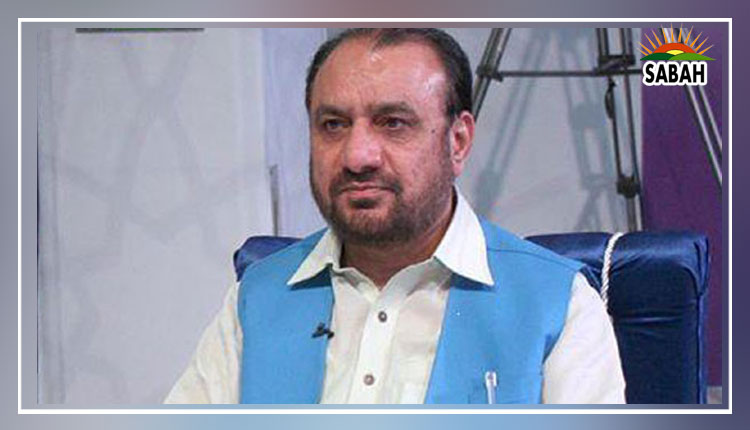A fund for the frontlines?…By Raza Hussain Qazi
The fifth meeting (B5) of the Board of the Fund for Responding to Loss and Damage (FRLD) has concluded in Bridgetown, Barbados, with a decision to launch the start-up phase of the FRLD under the name Barbados Implementation Modalities (BIM). The ‘start-up phase’ is a two-year (2025-2026) ‘test and learn’ period for the FRLD that is intended to guide the development of the Fund’s long-term operations.
In addition, the board met to establish a budget committee as a standing committee, replacing the existing ad-hoc subcommittee, approve the administrative budget for the independent secretariat, the interim secretariat, and the interim trustee for the period of July 1 to December 31, 2025. The board had on agenda to retroactively approve the expenditure incurred by the World Bank as the host and the interim trustee for the period from July 1 to December 31, 2024.
Retrospectively, the establishment of the FRLD took place at COP27 and was put into operation at COP28 after years of advocacy by developing nations. The Fund’s board, responsible for initiating the Fund’s activities, consists of 26 members representing 14 developing and 12 developed countries, with co-chairs from France and South Africa.
. These include the major international financial institutions involved in climate finance such as the World Bank, International Monetary Fund, Green Climate Fund, Adaptation Fund and UN agencies. Critics warned that relying on these institutions could hinder rather than accelerate the Fund’s start-up. The concern stems from the need to adhere to these partners’ timelines and bureaucratic procedures, which could significantly delay loss and damage interventions – especially given the Fund’s intended two-year start-up timeline.
Similarly, the choice of implementing partners such as large commercial banks which are still involved in investing in fossil fuels, or equity investors prioritising shareholder returns over long-term community impacts, should not be deemed appropriate for FRLD. These actors may lack the alignment with the principles of climate justice, community empowerment and public transparency that must underpin the FRLD’s operations.
This time, the agenda once again focused on operational modalities. However, representatives of the most climate-vulnerable nations emphasised several critical principles that must shape the foundation of the Fund from the very beginning of its so-called start-up phase. Foremost among these is the need for early financial interventions to be exclusively grant-based – not loans or equity instruments.
These interventions must be framed as an issue of climate justice, not treated as commercial transactions. Countries like Pakistan and Bangladesh, already experiencing massive climate-related loss and damage amounting to trillions, cannot be expected to take on additional debt. Grant-based support ensures that the financial burden is not shifted onto those least responsible for the climate crisis.
It is also pertinent that the Fund’s start-up phase must be firmly rooted in the successful and timely mobilisation of resources – resources that are adequate, predictable and sustainable. Without such funding in place, even the most technically sound and well-intentioned strategies will remain aspirational. A filled and functioning Fund is a non-negotiable prerequisite for any meaningful progress. If funding fails to materialise, discussions around governance, allocation and impact will carry little practical weight.
In shaping the Fund’s initial interventions, it is crucial the Board takes a holistic approach to addressing loss and damage. This means tackling both rapid-onset disasters and slow-developing climate impacts, while also acknowledging economic losses and the often-overlooked non-economic harms such as cultural erosion and forced displacement. The interventions must be grounded in the priorities and lived experiences of the most affected countries and communities, particularly those in vulnerable situations.
The true measure of the Fund for Responding to Loss and Damage (FRLD) lies in its ability to provide tangible, timely support to all developing nations. This is not only the key to operationalising the Fund but also to laying a strong foundation for inclusive, transparent, and equitable allocation and governance structures that genuinely reflect the needs of those most impacted. In short, the Fund must walk the talk if it is to gain and maintain the trust of climate-vulnerable communities.
Community inclusion and leadership must be at the heart of all funding approaches. To this end, the start-up phase should promote direct community access through mechanisms like budget support, programmatic approaches, and small grants. These should be embedded at the Fund level and mandated for all implementing entities. A pilot programme for direct community access, administered by the Fund itself, would set an important precedent, showcasing the FRLD’s commitment to equity and innovation.
This pilot should not be treated as a side initiative but as a core part of the Fund’s DNA – a bold move distinguishing the FRLD from existing climate funds that have often struggled to reach the communities most in need. It offers an opportunity for the Board to establish an ambitious and visionary agenda, one that centres climate-impacted people and delivers real outcomes on the ground.
To avoid overlap and ensure coherence, any readiness support provided under the start-up phase must be closely coordinated with the Santiago Network on Loss and Damage. Duplication of efforts and competition for resources will only undermine the effectiveness of both institutions. A collaborative approach, with clear division of responsibilities and complementary support structures, will maximise impact.
The Board bears a critical responsibility in shaping the FRLD into a transformative force. From the outset, it must articulate the ambition of a Fund that is fundamentally different from predecessors. It must commit to principles of equity, climate justice, and community-centered finance, rather than falling into the patterns of technocratic solutions that fail to reach the grassroots.
Guaranteeing community access is not just a technical design issue but a political and moral imperative. The emphasis on community-centered design is not merely a value-based choice but a strategic necessity. Without ensuring direct access and representation for those on the frontlines, the Fund risks becoming another top-down institution, divorced from the people it aims to serve.
Pakistan serves as a casus illustris, having suffered over $30 billion in loss and damages from the 2022 floods. The economic toll of climate-induced disasters globally now runs into trillions, vastly surpassing the financial pledges made over the past decades – even the written commitments from the international community have fallen short in practice. To transcend mere symbolism, there is a pressing need for urgent, scaled-up financial contributions that are paid-in, grants-based, and sustained over the long term.
The immediate hope is the upcoming High-Level Dialogue, convened by the FRLD and the UN secretary-general on the margins of the IMF and World Bank spring meetings on April 25, and then Belem CMA7.
It is necessary that the FRLD be built on a foundation of integrity, ambition, equity and justice. Without adequate funding, transparent governance and true community participation, the Fund risks becoming yet another institutional failure. There can be no meaningful progress or justice without the people most affected at the centre of solutions. Let the start-up phase of the FRLD not be remembered for cautious bureaucracy, but for bold action and transformative change.
COURTESY THE NEWS












